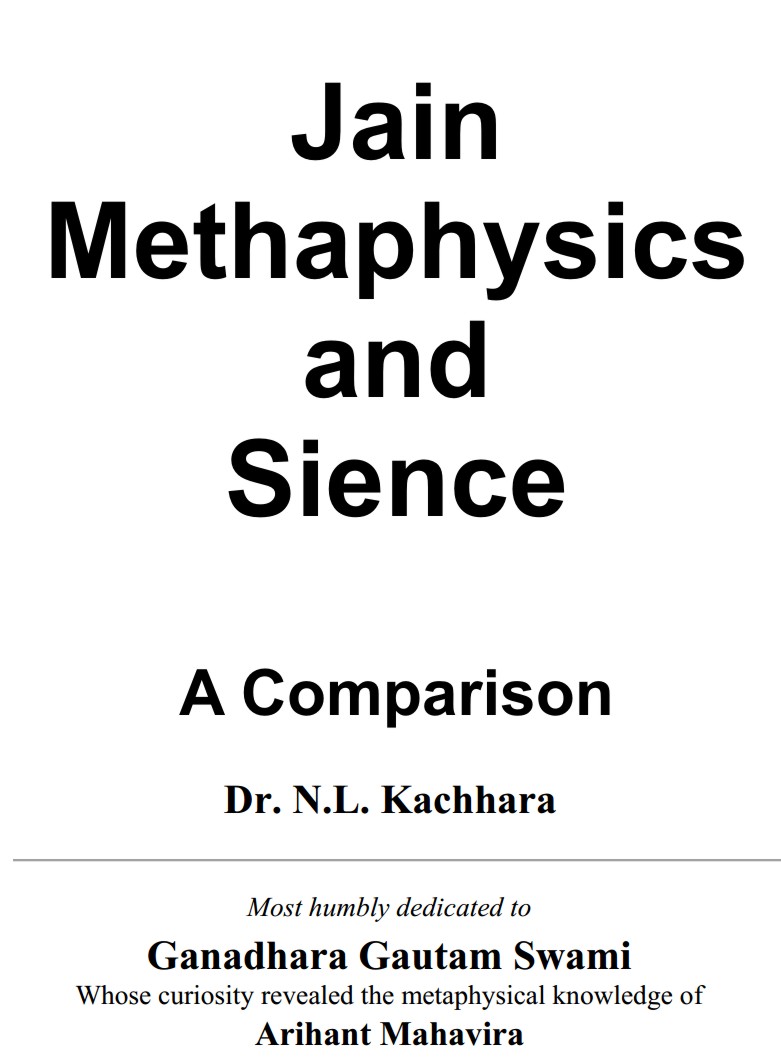Jain philosophy believes in dualism, the body is different from the soul. The soul is eternal; it can neither be created nor destroyed. The corollary of this rule is that the total number of souls in loka is fixed and it is infinitely infinite. The soul taking birth in loka is an active soul; birth only means acquisition of a new body by the soul. Science, while talking of origin of life, is referring to formation of a new body. The soul in essence is non corporeal and the body is made of matter. The characteristics of soul and matter are different but they unite to produce life. In order to appreciate life we must understand both the soul and the body forming matter.
The question to be answered is how life began on Earth? Before answering this question we clarify our view on origin of Earth. Jain philosophy supports the quasi steady state theory of finite universe where events like mini Big Bang, implying local and not overall, changes in the structure of the universe, are permissible. Such changes are in accordance with the rule of permanent existence through change of reality. So stars are destroyed and new stars and star systems are formed. Although life always exists in loka, the life on a new planet must begin in the sense that biodiversity must evolve. According to Jain philosophy small nano organisms found everywhere in loka are also present on the new planet. As remarked earlier the small nano organisms must contain a primitive gene like structure. Small nano organisms do not need oxygen so they survived in the oxygen deficient atmosphere of early Earth. Evolution starts from this organism when conditions on the planet are appropriate to sustain other forms of life.
As the life is a union of soul and matter, the role of both must be considered in evolution. Science, not recognizing the soul, focuses on the formation of material body through genes, DNA and other environmental factors. This is an incomplete view of evolution of life as has been aptly accepted by Stephen J. Gould. The soul is the source of intelligence; the high information content in life cannot arise by natural forces. Darwin's theory based on fossil records misses this subtler aspect of life that is so crucial to its growth and development. The soul is characterized by consciousness and without consideration of consciousness evolution can never be fully explained.
The study of consciousness is now drawing increasing attention of psychologist. According to Jain philosophy consciousness manifests as a power of intuition, perception, emotions, will, attitude and behaviour of organisms. Attributes like intensions, doubts curiosity, inquisitiveness, etc. are expressions of consciousness. More or less similar functions are being assigned to phenomenal consciousness and Access consciousness by psychologists. Rene Descartes has identified soul as the experience and Chalmers accepts Cartesian Dualism. The Panpsychism of Leibniz accepts that consciousness pervades in all matter and each point in the universe is endowed with conscious content. Autonio Damasio agrees that consciousness allows planned and not instinctual, responses in human beings. Durkheim proposed a concept of group consciousness and collective intelligence. All these ideas are drawing close to the concept of soul. Scientists are also expected to come to terms with these developments sooner or later. The quantum mechanic theories of consciousness on the other hand tend to identify with the functioning of the subtle bodies. Though still away from the concept of soul, these theories do describe important aspects of deeper functioning of the human body. To say that consciousness emerges from brain processing is certainly not acceptable; consciousness is the property of the inner-self and not of material body. Psychologists and Jain philosophy both accept the existence of unconscious mind and it has a definite role in determining the behaviour of human beings. The psychologists now agree that consciousness also exists in animals. The Jain view is very clear; consciousness is a characteristic of the soul and is present in all organisms. Consciousness has an important bearing on birth, growth and development of an organism and on biodiversity.
The atman is non corporeal and therefore for its functions in the gross world acts through a corporeal body in subtle form. The subtle body exists as karma body and luminous body as mentioned earlier. The karma body was identified as a coherent electromagnetic field storing information of actions and thoughts of all past lives and as an agency exercising regulation and control on the body through adhyasaya and lesya waves.
Of particular interest here are the bodies determining karma, which are responsible for physiological structure bodies of various species and the construction of body and organs of a particular species. We briefly study these karmas now.
 Dr. N.L. Kachhara
Dr. N.L. Kachhara
